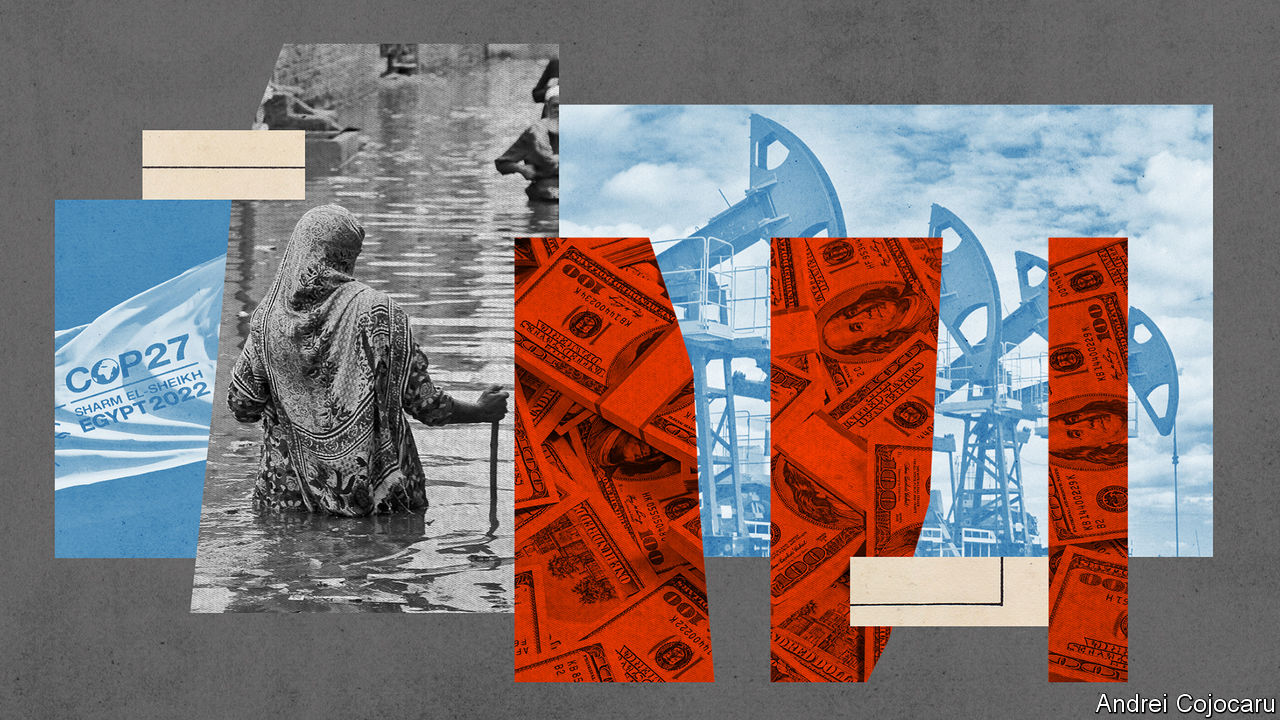The annual UN climate talks, known as COP27, took place in the Egyptian resort of Sharm el-Sheikh, with delegates facing issues such as catering problems and John Kerry negotiating from his hotel room due to covid-19. The talks, which were scheduled to end on November 18th, continued into the early hours of November 20th. The outcome was a text that fell short of promising to stop burning fossil fuels, instead focusing on phrases like “phasing down unabated coal” and eliminating “inefficient” fossil-fuel subsidies.
One key point of debate at COP27 was “loss and damage,” which involves rich countries paying poor ones to help deal with the consequences of climate-related disasters. This idea has gained momentum, with leaders of big carbon-emitting countries showing more willingness to address the issue. Last year, at COP26 in Scotland, the country’s first minister pledged £2m to the cause, signaling a potential shift in attitudes towards financial liability for climate change.
The need for rich countries to provide financial support was highlighted by events like heavy monsoon rains in Pakistan, which caused significant damage and financial losses. While natural climatic variations played a role, the effects of greenhouse gases likely exacerbated the situation. This demonstration of the impacts of climate change further emphasized the importance of addressing issues like loss and damage and exploring ways to adjust the global financial system to combat climate change effectively.









